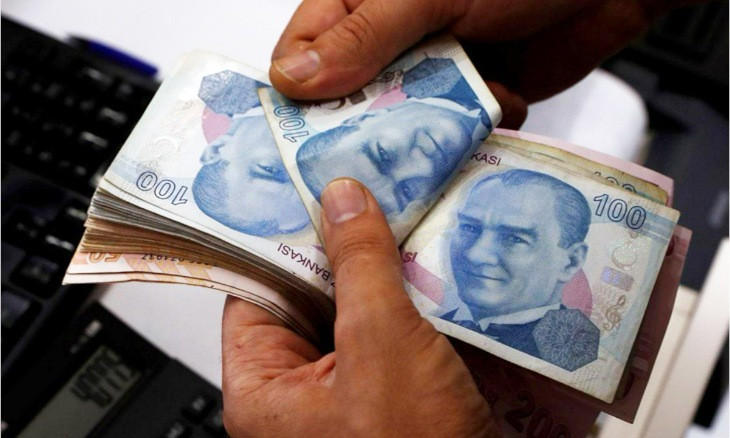Erdoğan ousts central bank governor after lira plunges to record lows
President Recep Tayyip Erdoğan has removed Central Bank Governor Murat Uysal from his post and appointed former Finance Minister Naci Ağbal in his place. Erdoğan had appointed Uysal to head the central bank in July 2019 when he sacked his predecessor Murat Çetinkaya, amid the president’s frustration that the bank had not cut interest rates to boost the economy.
Duvar English - Reuters
Turkish President Recep Tayyip Erdoğan removed the central bank governor from his post on Nov. 7 and replaced him with former finance minister Naci Ağbal after the lira currency hit record lows, having lost 30 percent of its value since the start of the year.
The decision to replace Murat Uysal as governor was made by presidential decree, which was announced in the country's Official Gazette. It was not immediately clear why Uysal had been replaced.
 Turkey's central bank keeps rate on hold that sends lira to new low
Turkey's central bank keeps rate on hold that sends lira to new lowThe lira closed at 8.5445 against the dollar on Nov. 6 after a touching record low of 8.58, despite dollar weakness as votes were still being counted in the U.S. election.
Erdoğan had appointed then-deputy governor Uysal to head the central bank in July 2019 when he sacked his predecessor Murat Çetinkaya amid the president's frustration that the bank had not cut interest rates to boost the economy.
Erdoğan, a self-described enemy of high interest rates, has repeatedly called for lower borrowing costs. Last weekend, he said Turkey was fighting an economic war against those squeezing it in "the devil's triangle of interest and exchange rates and inflation."
Naci Ağbal had been finance minister from 2015 until 2018, when he was appointed to head the directorate of presidential strategy and budget.
 Turkish Central Bank's net international reserves shrink dramatically as lira hits new low
Turkish Central Bank's net international reserves shrink dramatically as lira hits new lowAt the last meeting of its monetary policy committee on Oct. 22, the central bank bucked expectations for a big interest rate hike and held its policy rate steady at 10.25 percent, triggering sharp losses in the lira.
The bank, which also surprised markets a month earlier when it hiked rates, said it would continue with liquidity measures to tighten money supply. It raised the uppermost rate in its corridor, the late liquidity window, to 14.75 percent from 13.25 percent.
However, the lira has continued to slide despite those measures, weakening 30 percent against the U.S. currency this year to become the worst performer in emerging markets.
Bearishness towards the lira stems from concerns about possible Western sanctions against Turkey, depleted reserves, high inflation and political interference in monetary policy.
Analysts are concerned that Turkey's ties could suffer if Democrat Joe Biden becomes U.S. president.
Finance Minister Berat Albayrak on Nov. 5 out intervening to support the lira, reiterating government concerns that raising interest rates could hurt the economy.
